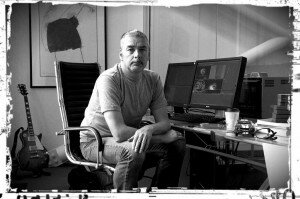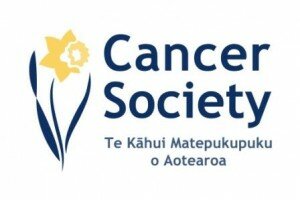
It’s amazing what difference forty eight hours can make. It’s about that time on Wednesday I was sitting in the warm sunshine outside an Italian restaurant at Mission Bay with Jo and my old friends Steve and Emma, enjoying a lazy, late lunch, sipping a cool Peroni and thinking that this cancer business really could be a whole lot worse.
Well today it really is a whole lot worse.
As I write this I’m sitting in a comfortable brown leather lazy-boy with a tuna sandwich and a cardboard carton of juice. Not as good as an Italian granted, but not all bad either. The only snag is that the lazy-boy I’m sitting in, is itself sitting in the Acute Oncology Department of the hospital. Oh yes, and I’m attached to a bag of someone else’s blood.
I’m bleeding again. Somewhere deep inside. Probably the tumor in my Osophogus. I know this because the dreaded black poo is back. I was feeling light-headed and nauseous yesterday, I was tired and my arms and legs felt dull and heavy. A sure sign of anemia. My fears were confirmed this morning at the now obligatory bathroom inspection. I scooped up a sample of the sticky tar- like substance in a tissue and dropped it into a zip-lock sandwich bag. “A Hundred and One Uses” it boasted on the box. “A Hundred and two now!” I thought. Jo rings the hospital and they tell us to come straight in. We stuff a few things into an overnight bag and catch the next ferry to the city.
Acute Oncology isn’t as nasty as it sounds. It is as bright and cheerful as a a ward packed full of medical paraphernalia can be, and very clean. Everything sparkles with an antiseptic gleam.The wipe-clean paintwork has been carefully chosen to make the rooms seem sunny and cheerful, even on an overcast day. Today its sunny, so the room is almost overwhelmingly bright. A nurse called Becky takes my bloods. I resist the temptation to tell her that that’s my daughter’s name, in case she thinks I’m hitting on her. “I understand you have a gift for me,” she says. Jo reaches into the hold-all and hands here my sandwich bag.
It’s hard to believe that somewhere in this sprawling complex of buildings, extensions, extensions to extensions, Porta-Cabins and sheds, there is a little dark room, where it is someone’s job to sit and sift through other people’s jobbies. Not only that, this person must have read books, studied, taken exams. Trained. At some point they must have made a conscious and deliberate decision. “I don’t want to be a heart surgeon or a pediatrician, I think I’ll be a turd man. That sounds like a rewarding and fulfilling vocation.”
We wait an hour or so for my blood tests to come back from the lab. One of the oncology doctors Raj comes over to talk to us. Yes my blood count is down, so I am to have a transfusion. Also, he explains that they are reluctant to start me on chemo while I have bleeding. The chemo can cause the tumor to break up, which would normally be a good thing, but in my case could make the bleeding worse. The new plan is to use radiation to “bake”, and dry out the tumor to stop the bleeding before commencing the chemotherapy.
Raj also asks if I had heard the results of my biopsy. I said “no”, but had figured that no news was probably bad news. He looked pained and said that yes, the samples had proved positive, the cancer has spread to my lymph nodes. “unfortunately, this means your treatment will probably not be curative…” He paused to let that sink in. “You do understand don’t you?” He seemed concerned that the message wasn’t getting through.
It!s not a subtle point he was making. I fully understood. I just didn’t feel the need to register shock or despair or burst into tears. The penny has been dropping in slow-motion for some weeks now. My chances aren’t good. I get it alright?
The blood arrives, fresh and cold from the fridge. Type O. My favorite. The nurse fits a dinky little connector to my recently installed Porta-Cath , and dials in the quantity and duration for the transfusion on the portable electronic volume pump. One unit of blood. 300ml. 120 minutes. I’m to receive two units so it’s going to be a long afternoon. I sit and watch the blood drip, drip, drip, from the bag on the stand into a clear plastic reservoir then creep slowly along the two meters of fine tubing, through the pump, past several valves and connectors and finally into my chest. What does it feel like? Well, you can’t feel anything at all. Unlike an IV drip in the arm, where you can sense the refrigerated blood inching along your veins cooling your flesh, this is direct injection into a main artery. There is no sensation of any kind. It’s only the quiet rhythmic creaking of the pump like a new leather brogue on a polished wooden floor, and the slowly emptying bag that proves there is anything happening at all.
Raj is back to tell me that after conferring with the radiologists upstairs, I am to be admitted for the weekend for observation, with radiation treatment planed for early nest week. My chemo is to be postponed for a fortnight. I can’t really figure out if that’s good news, bad news, or something in-between. It doesn’t really matter. I’ve given up fretting about things that I cant control – and thats just about everything right now. Jo seems relieved. I’m in the best place she tells me, and heads off to the hospital shop to buy toothpaste, deodorant and magazines. Shortly a cheerful young orderly in board-shorts and Nikes comes to take me up to Ward 64 in the main building opposite. I politely refuse the wheelchair he’s pushing. “Brilliant!” He says. “Last one of the day, and he’s a walker!”. He grabs my hold-all, swings it over his broad shoulder and strides out of the sliding doors and into the bright sunshine.



